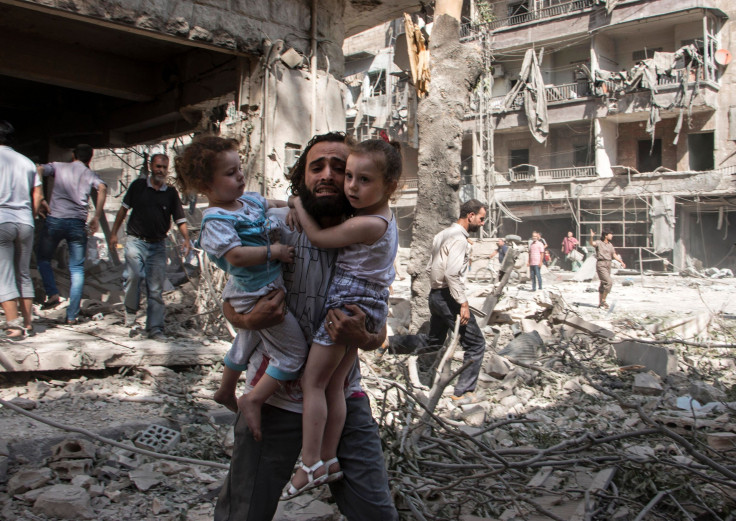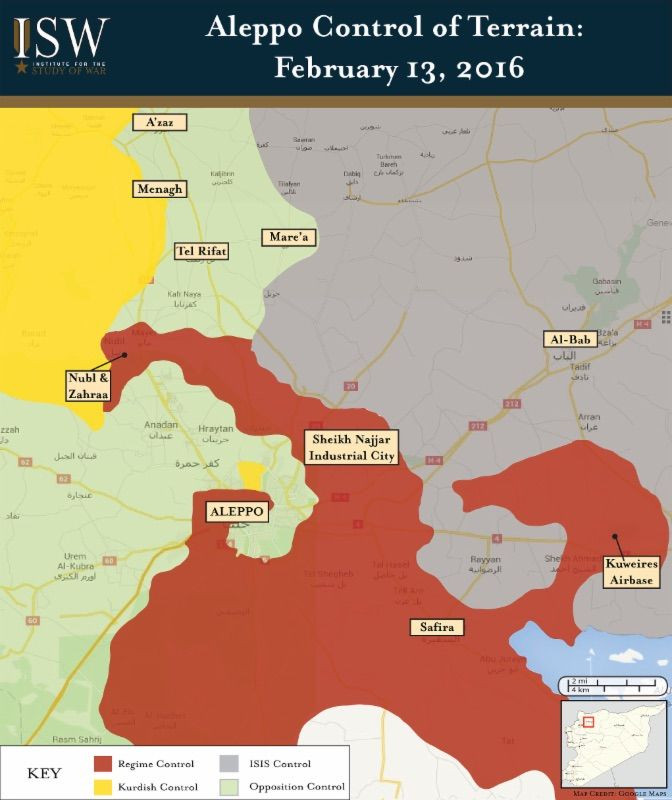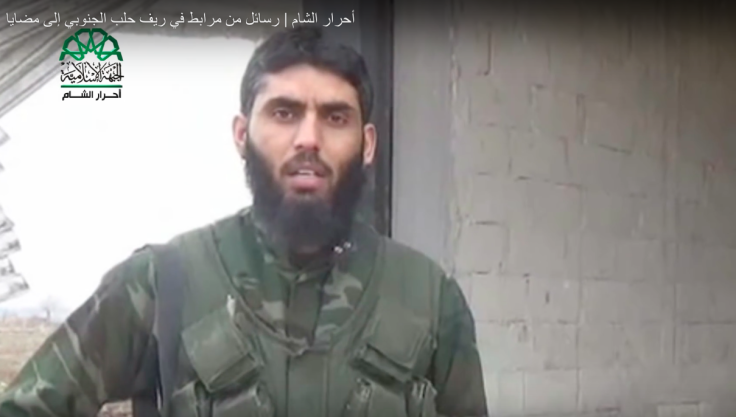In Aleppo, US Allied Kurdish Militias Battle For Land Not Loyalty

BEIRUT — The team captains — Russia and the United States — have chosen their players to battle in the conflict raging in Syria and to defeat the Islamic State group. It’s Russia, the Syrian regime, Iran and the thousands of fighters in Tehran’s various militias against the U.S., allies such as Turkey and Saudi Arabia, and various Syrian opposition groups. But the U.S. is also trying to woo a wildcard: the Syrian Kurds. They're a new ally on the ground that some American officials say could replace the now fractured Syrian opposition groups. The Syrian Kurds are a majority player in the Syrian Democratic Forces (SDF), the U.S. backed Kurdish-Arab coalition to defeat the group also known as ISIS.
“We have a tremendous asset on the ground right now, which is the Kurds,” U.S. Sen. Ted Cruz said in October. “The Kurds are allies, and they are boots on the ground. And when we work with them in concert, they’re ready to fight on the front line, along with serious airpower.”
At it’s core, the war in Syria is not a Kurdish fight though the Kurds do share many of the same enemies of warring parties. The Kurds have had major successes on the ground battling ISIS, but they also have significant tensions with Turkey, a major partner in the U.S. strategy to support rebel groups in Syria. But defeating either of these enemies is overshadowed by the Kurds’ first priority in Syria, which is to secure territory they are able to self-govern. And they are ready to adjust their allegiances in accordance with whichever side is most likely to help them achieve this goal — even the Syrian regime. Kurdish militias aligning closer to pro-regime forces could jeopardize U.S. policy in Syria, which aims for the defeat of both ISIS and Syrian President Bashar Assad.
“The Kurdish forces within the SDF [which also includes Free Syrian Army fighters] are pragmatic and realize they are playing for the days after the war,” said Nicholas A. Heras, a Middle East researcher at the Centre for a New American Security (CNAS). “They are pushing for a federal structure in Syria after the war and the more contiguous territory they control, the better their bargaining position will be.”
This month, both the U.S.-backed SDF forces and Russian supported pro-regime forces have made significant gains on the ground in northern Aleppo. But this week, the SDF has begun to encroach on rebel-held areas inching closer to the Turkish border with Syria. Kurdish forces with the SDF threatened Tuesday to enter the rebel-held town of Marea if opposition forces did not surrender. As of Thursday, no additional advances has been made.

“These Syrian Kurds supported by the American administration are also supported by the Syrian government,” Syrian envoy to the U.N. Bashar Ja'afari told reporters Tuesday. “The victory achieved in the northern part of Syria, both by the Syrian army and the Syrian Kurds, is a joint victory for all Syrians.”
In Aleppo, the two main groups that form the SDF are the Kurdish People’s Protection Units (YPG) and Jaish al-Thuwar, a rebel group. The YPG is aligned and supported by the Kurdistan Workers’ Party (PKK), the Turkish Kurdish militia considered a terrorist organization by both Turkey and the U.S. Jaish al-Thuwar is a coalition of former FSA groups and a “primary combatant against the predominately Arab, ideologically militant Islamist groups north and east of Aleppo that are backed by Turkey,” Heras said.
Heras told International Business Times any advances made by the SDF would not occur without the U.S. tacitly allowing them to, even if seizing territory from rebel groups seems to go against U.S. policy in Syria, which has long been to support the moderate opposition.
But in Aleppo, the situation becomes increasingly complicated as the majority of non-SDF rebel groups do not support the Kurds. One major reason for this is opposition forces believe the Kurdish fighters — and by association the SDF forces — are pawns of the Assad regime.
“Of course the Kurdish Army is fighting with Assad’s army,” said Omar Khatab, a northern Aleppo-based fighter with Ahrar al-Sham, an opposition group linked to al Qaeda.
When asked why Jaish al-Thuwar, the major Syrian rebel group leading the SDF fight in Aleppo, would side with Assad, Khatab said: “All the world, America and Assad kill us. Why? Because we say there is no God but Allah.”

But the SDF denied having any allegiance to the Syrian regime.
“We have fought the regime from before, and we still fight. Our true enemy is the dictatorship regime who has been killing our people and our families,” Ahmad Arag, a spokesman for the rebel section of the SDF, told IBT. “But our objective for now is to fight Daesh [ISIS] and Jabhat al-Nusra.”
While that may be true, pro-regime forces have not hindered or clashed with SDF advances in Aleppo. In fact, Kurdish fighters with the SDF capitalized on Russian airstrikes in Aleppo to secure territory on the road to the northern town of Azaz. Securing Azaz will allow Kurds to consolidate territory in Syria along the Turkish border.
When Russia began bombing Syria in October, a high-ranking Hezbollah official told IBT roughly a year ago the Syrian regime promised some Syrian Kurdish factions control over the area between Hasakah, on the Turkish border, and the central province of Aleppo. The regime and Russia promised the Kurds “freedom of speech, self-ruling [and] territory,” the official said, as long as they cleared it from “terrorists,” a word almost synonymous with opposition in the eyes of pro-regime forces.
Any claims of Kurds fighting the regime are “only words for politics. In politics there’s nothing that you’re not supposed to do,” the Hezbollah official said.
Though the SDF forces are fighting ISIS and al Qaeda, a major pillar of the American strategy in Syria, a Kurdish state along the Turkish border could bring about a new complication. Turkey has vowed to crush any attempts at a Kurdish state along its border, whether by strengthening opposition groups it already supports or by intervening directly in the Syrian conflict.
As the Kurds and SDF continue to gain ground, “the current situation in the area of Aleppo is as much about tense policy disagreements between Ankara and Washington as it is about local socio-political animosities inside of Syria” Heras said.
© Copyright IBTimes 2024. All rights reserved.






















